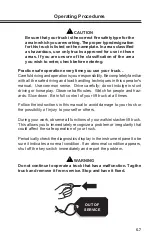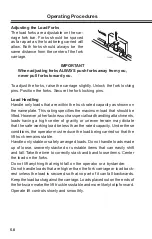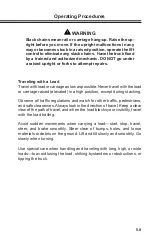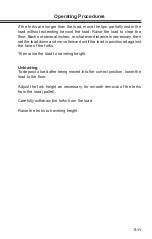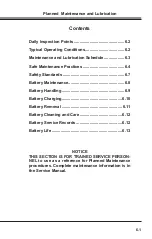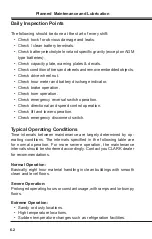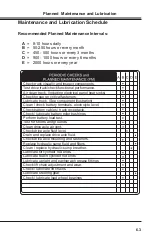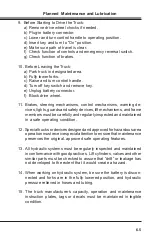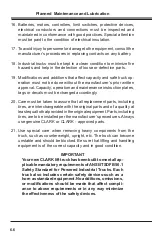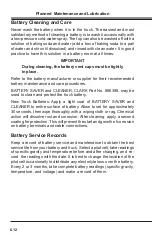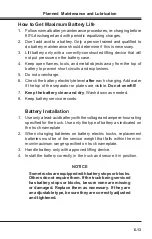
Planned Maintenance and Lubrication
6.5
9. Before Starting to Drive the Truck:
a) Remove drive wheel chocks if needed.
b) Plug-in battery connector.
c) Lower and turn control handle to operating position.
d) Insert key and turn to "On" position.
e) Make sure path of travel is clear.
f) Check function of controls and emergency reversal switch.
g) Check function of brakes.
10. Before Leaving the Truck:
a) Park truck in designated area.
b) Fully lower forks.
c) Raise and turn control handle.
d) Turn off key switch and remove key.
e) Unplug battery connector.
f) Block drive wheel.
11. Brakes, steering mechanisms, control mechanisms, warning de-
vices, lights, guards and safety devices, lift mechanisms, and frame
members must be carefully and regularly inspected and maintained
in a safe operating condition.
12. Special trucks or devices designed and approved for hazardous area
operation must receive special attention to ensure that maintenance
preserves the original, approved safe operating features.
13. All hydraulic systems must be regularly inspected and maintained
in conformance with good practices. Lift cylinders, valves and other
similar parts must be checked to assure that “drift” or leakage has
not developed to the extent that it would create a hazard.
14. When working on hydraulic system, be sure the battery is discon-
nected and forks are in the fully lowered position, and hydraulic
pressure relieved in hoses and tubing.
15. The truck manufacturer’s capacity, operation and maintenance
instruction plates, tags or decals must be maintained in legible
condition.
Summary of Contents for WSRX 30
Page 6: ...iv...
Page 30: ...2 8...
Page 44: ...4 6 Operator Maintenance and Care...
Page 72: ...Planned Maintenance and Lubrication 6 14...
Page 74: ...7 2...
Page 76: ...8 2...



